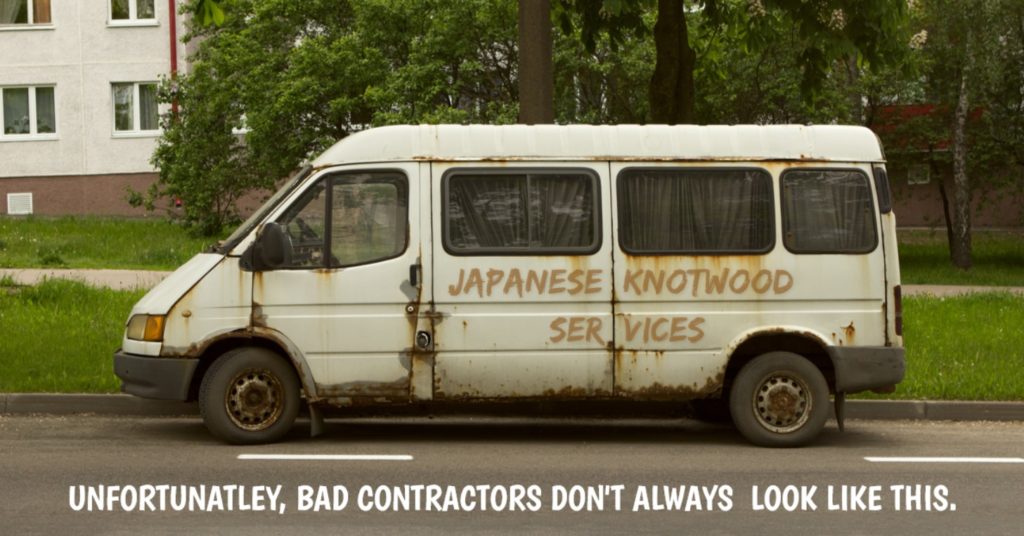
Invasive weed control is a relatively new market. While companies have offered and specialised in commercial grounds maintenance and grass-cutting operations for hundreds of years, the specific market of invasive species management has only become a commercially-viable offshoot in the last twenty-five years.
The methodologies for invasive weed control are, in some cases, different from traditional grounds maintenance, which has given opportunity for some unscrupulous marketing techniques. When inexperienced clients are advised that a five-to-ten year eradication strategy is required, it can be very tempting if a company comes to them and says – ‘We can kill it with one spray’ – and the lie will not be exposed for at least twelve months, by which time the contractor may well have shuttered or folded.
Unfortunately, one of the bigger challenges in the invasive weed control industry is being recognised for your skills and expertise in a relatively unregulated market where it seems easy to make claims that are never substantiated.
How many times have you been on a new company’s website and read, ‘The number one Japanese knotweed contractor’ – ‘The first Knotweed contractor’ – ‘100 years’ experience’ – ‘Lloyds-backed guarantees?
Stories abound of experienced companies losing out to one-man-band operations who promise work in timescales that they simply cannot deliver. Cheap prices are submitted by inexperienced companies, when the reality is that the lack of job experience has led to a severe underestimate of the time and resources taken to eradicate invasive plant infestations – yet these tender values lead to widespread expectation of such unfeasibly low prices.
So, how do you separate the wheat from the chaff?
Securing accreditations and being a member of a trade body would seem to be a good way to demonstrate that you are a credible company; however, the membership criteria often seem to consist solely of being able to pay a fee, with less focus on demonstrating skills, experience, knowledge and competence.
The Invasive Non-Native Specialists Association (INNSA) aims to recognise those companies that are of a higher quality and have greater experience than others in the field.
INNSA aims to attract larger commercial operators who carry out projects outside the domestic market; those who understand and demonstrate a proven track record with the particular methodologies that are specific to the invasive species remediation sector.
INNSA does not aim for a large membership. You will not see headlines stating that “new member numbers have exceeded all expectations”. You will not see an award for the 1,000th newly-approved member – there will simply never be that number of companies that meet the INNSA membership criteria.
While this may seem unfair to newer companies, INNSA simply aims to differentiate between newly-established businesses which do not have the business processes, the infrastructure and the experience of companies that have been trading for ten or even twenty years. Often ten- and twenty-year programmes of work are offered by companies that have only traded for only six months. To INNSA, this seems a somewhat risky proposition.
Many invasive species eradication strategies require periods running into several years to complete. For this reason, knowing that your chosen contractor has the resources, the management capacity and the experience to finish these works it is vital for a client who wants reliable service and value for money.
Mike Clough
INNSA Chairman
